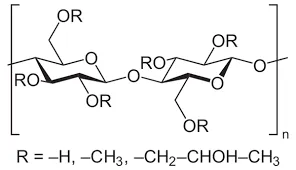
అక్టో . 03, 2024 01:24 Back to list
HPMC Applications in Cleaning Products and Detergent Formulations for Enhanced Performance
The Role of HPMC in Detergents Enhancing Performance and Sustainability
Hydroxypropyl Methylcellulose (HPMC) is a versatile, non-ionic polymer derived from cellulose. It has gained significant attention in various industries, including pharmaceuticals, food, and construction. However, one of the most promising applications of HPMC is in the formulation of detergents. The incorporation of HPMC into detergent products not only enhances their performance but also aligns with the growing demand for sustainable and eco-friendly cleaning solutions.
Understanding HPMC
HPMC is a modified cellulose that combines the properties of natural cellulose with enhanced functionalities. This water-soluble polymer exhibits excellent thickening, emulsifying, and film-forming properties. Its ability to form gels and stabilize suspensions makes it an ideal ingredient in many formulations, including detergents. The degree of substitution of the methoxy and hydroxypropyl groups can be tailored to achieve specific properties, allowing formulators to create detergents that meet the diverse needs of consumers.
Improving Cleaning Efficiency
One of the primary benefits of incorporating HPMC into detergent formulations is the enhancement of cleaning efficiency. HPMC acts as a rheology modifier, which improves the viscosity of the detergent solution. This increased viscosity allows the detergent to cling better to surfaces, providing a more effective cleaning action. By forming a film on dirty surfaces, HPMC prevents soil redeposition, ensuring that dirt and stains are effectively removed and rinsed away.
Moreover, HPMC can enhance the dispersion of other active ingredients in the detergent. By stabilizing emulsions and suspensions, HPMC ensures that the cleaning agents are evenly distributed throughout the product. This uniform distribution maximizes the contact between the detergent and the soil, leading to superior cleaning performance.
Enhanced Stability and Shelf Life
Stability is a critical factor in the formulation of detergents. HPMC contributes to the overall stability of the detergent formulation, preventing phase separation and ensuring a consistent product over time. This stability is particularly important in liquid detergents, where separation can lead to ineffective cleaning solutions. By incorporating HPMC, formulators can extend the shelf life of their products, providing consumers with reliable and effective cleaning solutions.
hpmc for detergent

Eco-Friendly and Biodegradable
In recent years, there has been an increasing demand for sustainable and environmentally friendly cleaning products. HPMC is derived from natural cellulose, making it a biodegradable and eco-friendly option for detergent formulations. As consumers become more conscious of the impact of their purchasing decisions on the environment, the inclusion of biodegradable ingredients like HPMC can enhance the market appeal of detergent products.
Furthermore, HPMC’s non-toxic and safe profile makes it an excellent choice for household cleaning products. It does not contribute to harmful environmental effects, nor does it pose risks to human health, aligning with the growing trend toward green chemistry in detergent formulation.
Versatility in Formulation
HPMC’s versatility allows it to be incorporated into various types of detergents, including liquid, powder, and gel formulations. This adaptability makes it a favored choice among formulators aiming to create products that cater to different consumer preferences. Additionally, HPMC can be combined with other ingredients, such as surfactants and enzymes, to create multifunctional cleaning products that offer enhanced performance.
As the detergent industry continues to evolve, the demand for innovative and effective cleaning solutions rises. HPMC stands out as a valuable ingredient that not only boosts cleaning efficacy but also aligns with the principles of sustainability. By incorporating HPMC into detergent formulations, manufacturers can deliver products that meet consumer needs while contributing to environmental stewardship.
Conclusion
In summary, HPMC plays a crucial role in the formulation of modern detergents. Its unique properties enhance cleaning efficiency, stability, and performance while supporting the demand for sustainable products. As the market shifts toward eco-friendly solutions, the integration of HPMC in detergent formulations is poised to grow, offering consumers effective cleaning without compromising environmental values. With continued research and innovation, HPMC will undoubtedly remain a staple ingredient in the development of dynamic and sustainable cleaning products.
-
The Widespread Application of Redispersible Powder in Construction and Building Materials
NewsMay.16,2025
-
The Widespread Application of Hpmc in the Detergent Industry
NewsMay.16,2025
-
The Main Applications of Hydroxyethyl Cellulose in Paints and Coatings
NewsMay.16,2025
-
Mortar Bonding Agent: the Key to Enhancing the Adhesion Between New and Old Mortar Layers and Between Mortar and Different Substrates
NewsMay.16,2025
-
HPMC: Application as a thickener and excipient
NewsMay.16,2025
-
Hec Cellulose Cellulose: Multi functional dispersants and high-efficiency thickeners
NewsMay.16,2025







